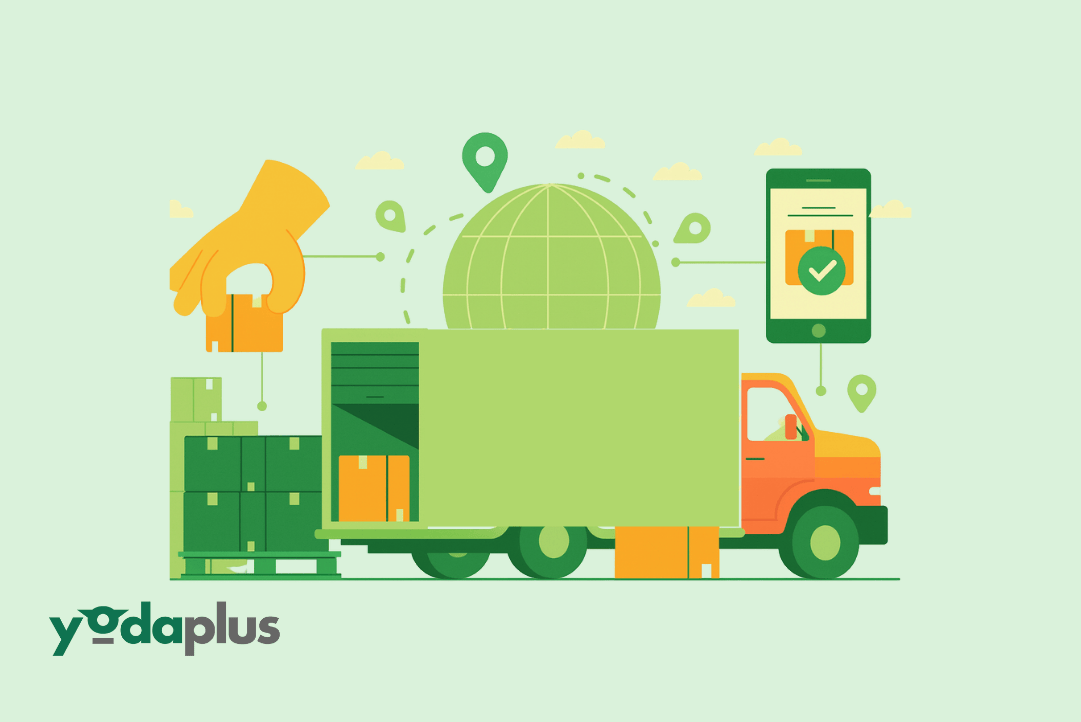
Predicting Last-Mile Delays Using AI + IoT
August 25, 2025 By Yodaplus
Last-mile delivery is one of the most challenging parts of the logistics process. Whether it is delivering groceries, electronics, or fashion items, the last stretch to the customer’s doorstep often takes more time and resources than expected. For companies in retail and e-commerce, unpredictable last-mile delays can hurt customer satisfaction and increase costs. This is where AI and IoT come together to make a real difference.
Why Last-Mile Delivery Needs Better Prediction
Supply chain technology has transformed many areas of logistics, but last-mile delivery remains unpredictable. Traffic congestion, weather changes, vehicle breakdowns, and inaccurate addresses are just a few reasons why delays happen. For retailers, this affects not only delivery speed but also brand reputation.
Traditional tracking systems are often reactive. They notify when something is already late. What businesses need is a way to predict delays before they happen. That’s where Artificial Intelligence and Internet of Things (IoT) play a key role.
How AI and IoT Work Together
AI technology can analyze huge volumes of data, including delivery routes, traffic patterns, and weather forecasts. When combined with IoT sensors on vehicles, warehouses, and packages, it creates a real-time network of information. Sensors can track vehicle speed, driver behavior, and even package conditions.
For example, an AI-powered analytics system can see that a delivery truck slowed down due to heavy traffic. It can then predict a delay, inform customers, and suggest alternate routes to drivers. This approach is especially valuable in retail inventory systems where on-time delivery affects stock availability.
IoT devices also integrate with warehouse management systems (WMS) and inventory management solutions, giving retailers a clear picture of where goods are and how quickly they can be moved.
Benefits for Retailers and Supply Chains
-
Faster, more accurate predictions: Supply chain optimization powered by AI can analyze live data to forecast delays minutes or even hours in advance.
-
Better customer experience: With AI-driven notifications, customers know exactly when to expect their orders.
-
Reduced costs: Predictive analytics help avoid penalties and improve driver scheduling.
-
Improved inventory control: Insights from IoT sensors help keep the retail inventory system accurate and ready for reordering.
-
Stronger decision-making: Enterprise Resource Planning (ERP) platforms can integrate with AI to make smarter operational choices.
Real-World Applications
Several businesses are already using these technologies. Retail giants use AI to track thousands of deliveries daily and identify potential bottlenecks. Logistics providers use IoT-enabled vehicles to monitor routes and delivery times. Even mid-sized retailers now combine custom ERP systems with AI to better manage inventory optimization and supply chain technology.
For example, if an inventory management system sees stock running low at a regional warehouse, AI can prioritize faster shipments and adjust driver routes. It also ensures products reach stores on time, improving customer satisfaction.
Challenges and What to Watch
Implementing AI and IoT in last-mile delivery requires investment in hardware, software, and training. Data security is another key concern, especially when using cloud-based inventory management systems. Companies must also ensure that their systems scale with demand, particularly during festive or promotional periods.
However, the benefits often outweigh the challenges. Predictive technology reduces waste, improves accuracy, and delivers a better overall experience.
What the Future Holds
The future of retail and supply chain technology will depend on how well businesses can merge physical and digital insights. Yodaplus Supply Chain and Retail solutions are designed to support this shift, offering AI-powered automation to handle route planning and IoT sensors to ensure every package is accounted for. Retailers can expect tighter integration with ERP systems, more advanced inventory optimization, and better supply chain solutions overall. As consumer expectations rise, companies that invest in AI-driven retail technology solutions like those from Yodaplus will lead the market. In short, predicting last-mile delays using AI and IoT is no longer optional. It is becoming essential for any business that wants to meet customer demands, control costs, and stay competitive.